As an Amazon Associate I earn from qualifying purchases.
Ladies and gentlemen, meet China’s answer to barbecue: Char siu pork.
You probably have seen glimpses of it, as chopped up bits in fried rice, or those spare ribs many cheapy Chinese takeout places sell. That’s char siu pork, but it ain’t good char siu pork. That is to real Chinese BBQ what the McRib is to real barbecue.
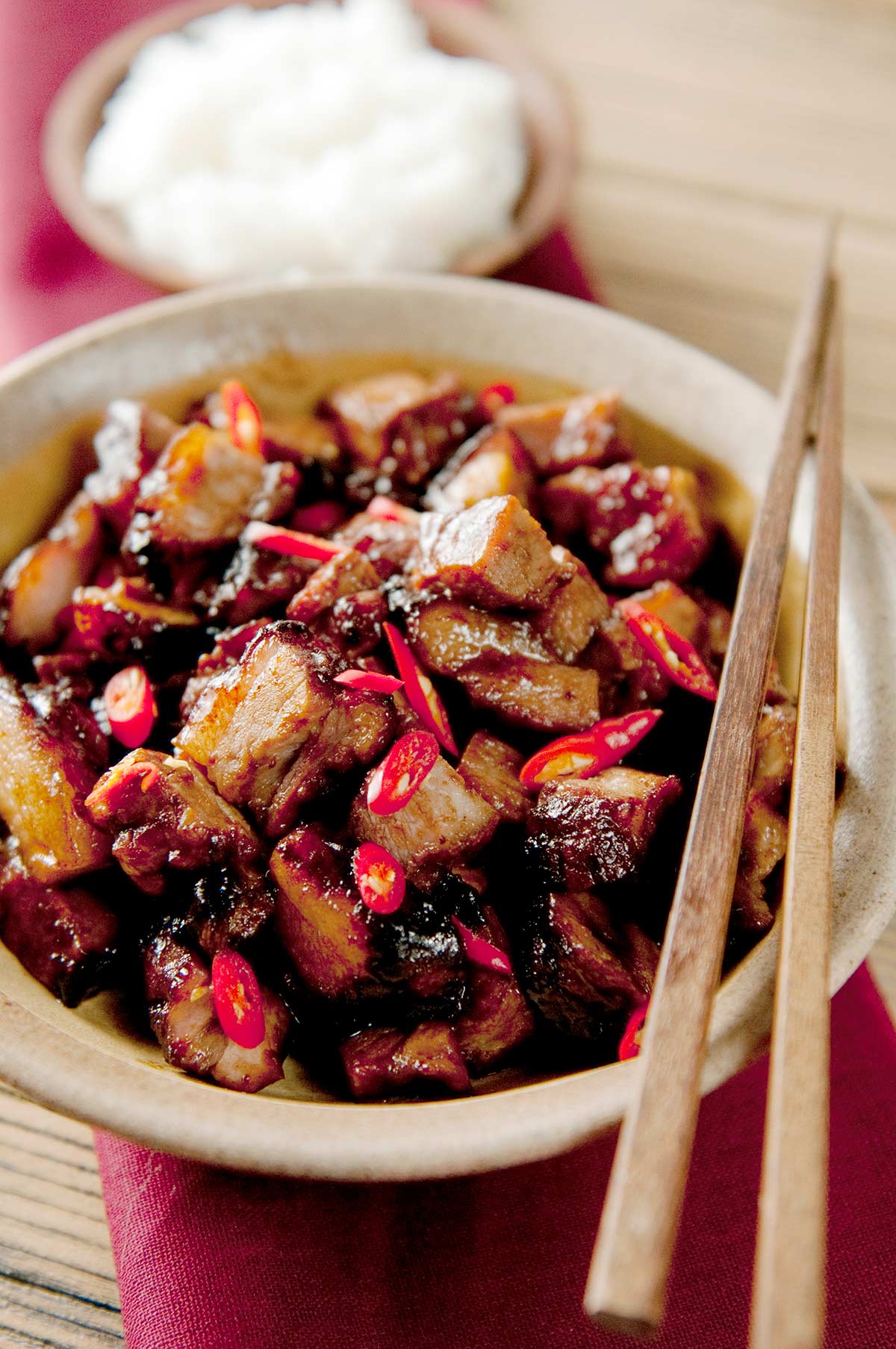
Char siu pork is sweet, smoky silky and spicy — both in the heat sense of the word and because you can definitely detect the Chinese five spice powder in here. You can buy the sauce in stores, and in fact I did. I tried it, and, well, meh. Gloppy, overly sweet, no real heat. Back to the drawing board.
Turns out you can make your own char siu sauce. So I did, and here it is. My recipe is an amalgam of a half-dozen I’ve read in various Chinese cookbooks, as well as online. I’ve run it past several Chinese food experts, and they gave this recipe their thumbs up.
You will need a piece of fatty pork, like pork butt, “country ribs” or pork belly. If you’re hunting pigs, look for the same cuts. (You could also use bear here, if you are a bear hunter.) While you can make char siu with pork loin, it won’t be as lush. Fat helps.
Char siu pork is Cantonese, and mostly is made of hoisin sauce, five spice powder, soy sauce, sometimes honey or sugar, Shaoxing wine or sherry, plus an acidic element, in this case Chinese black vinegar. I add chile bean paste and some fresh chiles, too, since I want heat to balance the sweet.
In many restaurants, you will see this pork even redder than it ought to be: That’s because they are using red food coloring. I do not, and it’s not necessary.
I also have a recipe for char siu duck legs you might like. And if you don’t have a grill or smoker, my Chinese red cooked pork is very similar and can be made on the stovetop.
With the exception of the Shaoxing wine and the black vinegar, all of these ingredients are easily available in most supermarkets, or online. Dry sherry and malt vinegar are decent substitutes for the wine and vinegar.
I typically serve my char siu pork over simple steamed rice, maybe with some pickled mustard greens and an ice cold beer. If you have leftovers, use it in fried rice, added to vegetable stir fries, or if you are adventurous, Chinese bao buns.
Chinese Char Siu BBQ Pork
Ingredients
- 1/2 teaspoon Chinese 5 spice powder
- 2 tablespoons honey
- 2 tablespoons soy sauce, preferably dark soy sauce
- 2 tablespoons hoisin sauce
- 4 tablespoons Chinese Shaoxing wine, or dry sherry
- 1 tablespoon Chinese chile bean paste (optional)
- 3 minced garlic cloves
- 2 tablespoons grated ginger
- 2 pounds pork shoulder or belly
- 1-2 tablespoons Chinese black vinegar or malt vinegar (optional)
- 1-2 sliced fresh chiles, for garnish (optional)
Instructions
- Make the char siu sauce by mixing all the ingredients except for the pork in a blender and pureeing for 1 minute. Pour into a bowl. Put the pork into a plastic container that will just about fit it, and coat with a little of the char siu sauce. Leave at least 1/2 of the sauce for basting later. Marinate for at least 30 minutes, and up to 2 days.
- Get your grill going, leaving some space for indirect heat. If you are using a gas grill, turn off all but one burner. If you are using charcoal, leave an open space on one side of the grill. If you are using a smoker, set it to 225°F. Make a drip pan out of aluminum foil and set that under where the pork will be. You are looking for slow, steady heat here, never hotter than 300°F. Alternately, you can cook the pork in the oven at 225°F
- Set the pork on the grill over the drip pan and away from the direct heat. Cover the grill and cook until it's tender, which will take between 2 and 4 hours, depending on how large a piece of pork you started with and whether it's wild or farmed. Baste the pork with the char siu sauce every 45 minutes or so. Turn the pork every hour.
- To serve, cut into bite-size pieces and toss with the remaining char siu sauce. A splash of Chinese black vinegar or malt vinegar right at the end is a nice touch. Garnish with sliced fresh chiles and serve with white steamed rice, some pickles or fermented mustard greens and lots of cold beer.
Nutrition
Nutrition information is automatically calculated, so should only be used as an approximation.
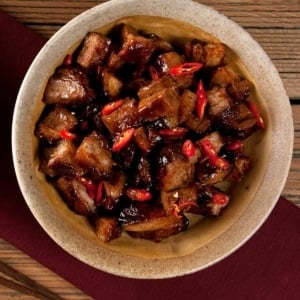
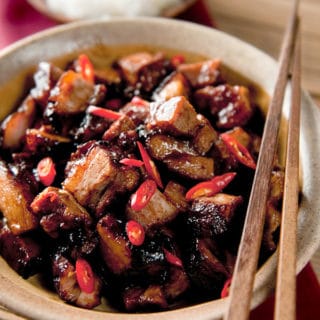
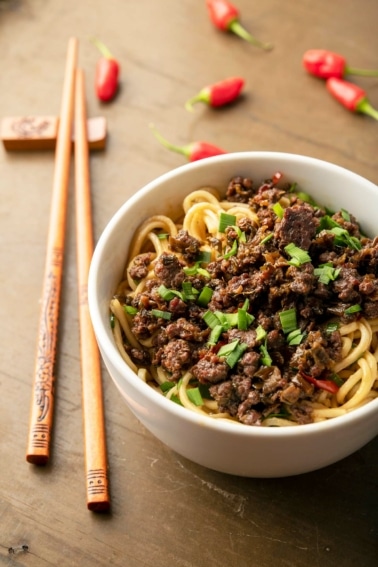
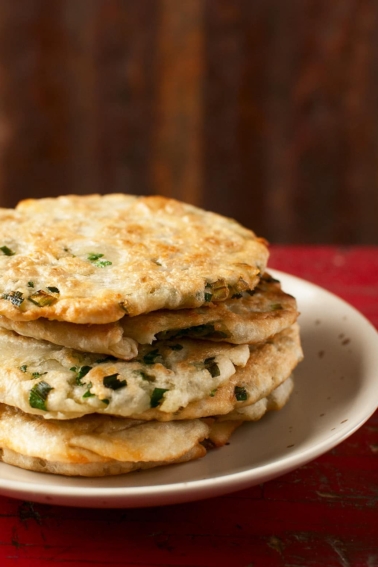
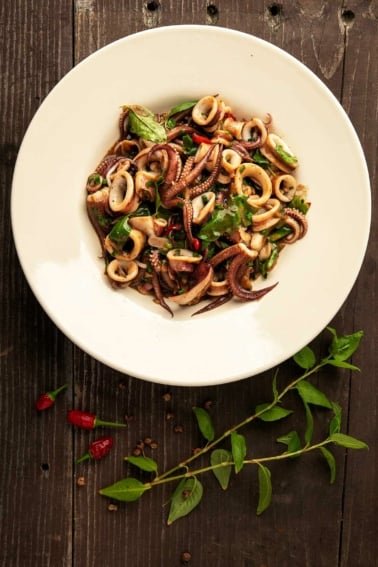
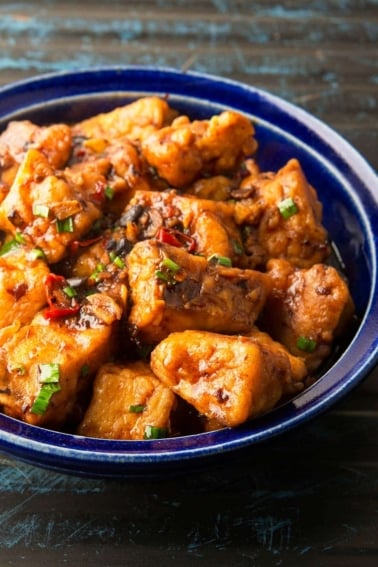
Phenomenal. Made both braised erosion using the same recipe plus some added water over stir fried cabbage last night then ribs using the methodology described here. Excellent chew, wonderful color, and better flavor. Will be making again!
Made this the first time following the recipe for Christmas Eve, it was also a first making Chinese BBQ. I used a 4lb pork shoulder roast from a pig a buddy raised and sold me. Smoked it on a pellet grill.
I doubled the sauce, but ended up make a triple batch when I noticed how much braising liquid I was going though. Additional lessons learned were to trim the fat off the roast beforehand. Maybe even slicing it into 1/3rds before smoking. This would decrease the cooking time (14 hrs for me) and increase the caramelization of the braising liquid on more surfaces.
I will for sure make Char Siu again, but change the recipe a bit or follow a different one. This recipe was a great introduction into Cantonese BBQ.
Hi Hank, I have been studying some of your recipes for quite some time now. One of the best resources for wild venison and boar I have seen. We have our own small production of these amazing animals in Czechia and I am always looking for inspiration. Can I cook this recipe in the oven covering the meat with aluminium foil and switching on the steamer in the oven to keep it really tender?
Kevin: I bet that would work.
I tried out this recipe tonight on the family every one enjoyed it thanks!
Cooked in the oven a double batch and packed away the extra meat. 6 hours at
225°F turned out just right..
any thoughts on whether this would work in a vintage rotisserie oven? high, med or low?
Can you define ‘Chinese chile bean paste’ a little better?
Guy: Sure: This: https://www.amazon.com/Lee-Kum-Kee-Chili-Sauce/dp/B0001WOSQY
This sounds very yummy. I going to give if a try. Thank you Hank
Is there an internal temp you tend to shoot for, or is this a “it’s done when it’s done” type scenario?
Jay: It’s more of an “it’s done when it’s done” thing, but the internal temp is pretty high, I bet about 190 degrees.
After tasting this over this past weekend, I’m thinking it will be a great prep for one of those micro pigs we shot.
Made this tonight Hank. Used the malt vinegar and sherry substitutes and it came out excellent. But, you were right, I should have doubled the sauce recipe.
got all the sauce ingredients at the super 88 tonight – looking forward to trying this out this weekend. (i may dial back on the chile bean paste, only because i am a wimp.)
Beth and Mike: Fair enough. I like my chiles. 😎
looks like a lot of chili’s there.
How would you cook in the oven? In a dutch oven at 300 degrees until tender? In a roasting pan – covered or uncovered?
Thanks.
Tom: Yep, that sounds about right. Cover the pan for sure.
Looks delicious. What kind of chilis do you like to use as the garnish? Do you have any suggestions for the pickles? If that’s something you make yourself, I’d love to see a post on it sometime!
Matt: I use Thai or serranos. As for the pickles, I mostly use these: https://honest-food.net/2013/05/20/pickled-mustard-greens-recipe/